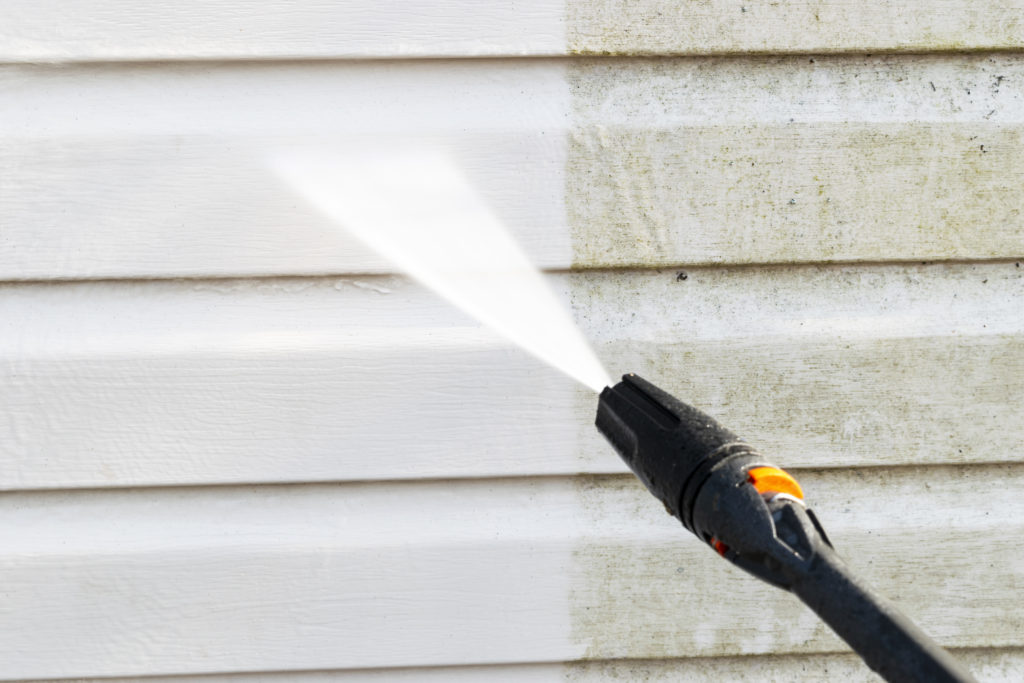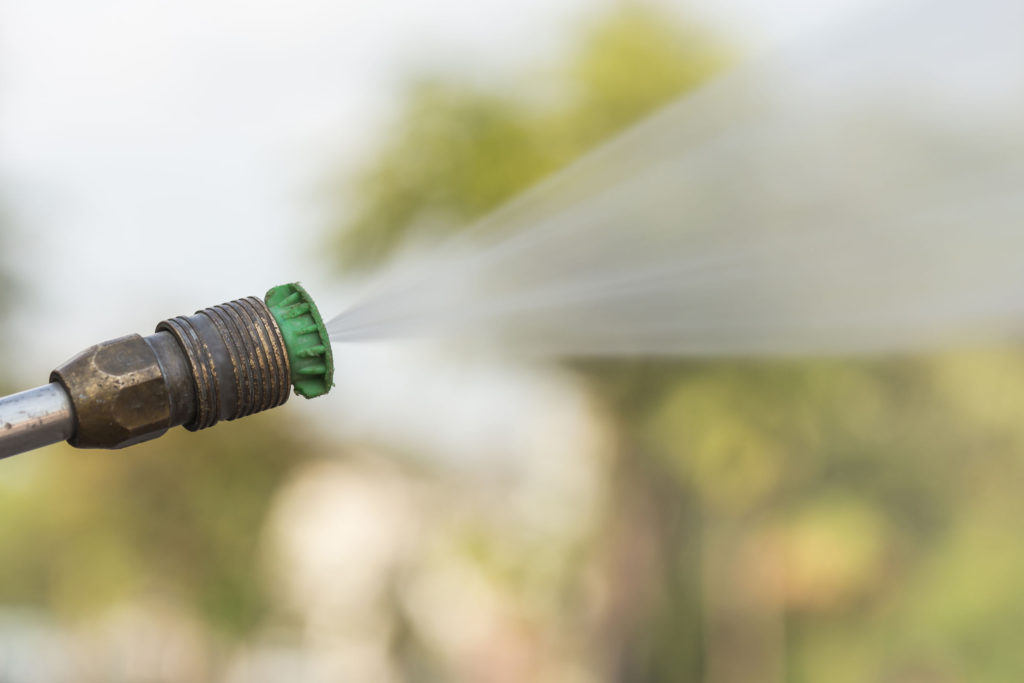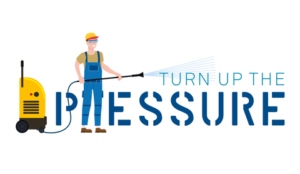
Pressure washers are a useful tool in cleaning just about any surface you can think of. They work by spraying a mixture of water and cleaning solution at a fast rate out of a small opening.
Pressure washers use less water per minute than a typical garden hose. Pressure washers use 2.2 to 10 gallons of water per minute, while gardening hoses use 17 to 23 gallons of water per minute. Pressure washers are also more effective and will clean faster, using up less water to finish a job.
Is it worth the cost to buy a pressure washer? Are they really any different than a typical hose? Are they better for the environment? Read on to learn more.
Pressure Washers
Whether you need to clean your patio, the sidewalk, some old furniture, or even a muddy pair of shoes, a pressure washer will get the job done in a timely fashion. These fantastic machines not only clean better than Mr. Clean himself, but they are better for the environment than a normal gardening hose.
While you may think that a garden hose uses less water than a pressure washer to clean a surface, the reverse is actually true. A pressure washer uses 2 gallons of water per minute compared to garden hoses that use 20 gallons of water per minute, states the Long Beach Water Department.”
Source
Garden hoses are great if you want to water your lawn or wash your car, but if you want to save on water and not waste any of the precious H2O, then for your harder cleaning jobs you should invest in a pressure washer. Not only will you be using less water per minute, but you will also get the job done exponentially faster since pressure washers spray water about 75 times the pressure that normal hoses do.

So how do pressure washers work? There are typically five parts that make up the machine: the water inlet, the motor/engine, the water pump, the high-pressure hose, and any attachments.
- Water inlet: the water inlet on your pressure washer is the part that connects your washer to the main water supply. Usually, the inlet is a hose that connects to your chosen water source, often your home garden hose. The water inlet has a filter that prevents any debris, such as small rocks, from entering the machine and causing damage.
- Motor/engine: pressure washers work by using either an electric motor or a gas-powered engine. Larger pressure washers need gas to function, but smaller washers just need an electricity source. There are benefits to either model, but if you don’t want to deal with an electrical cord, or you plan on using your pressure washer away from an outlet, then the gas engine model might be a better choice for you. Either way, the motor or engine is used to power the water pump.
- Water pump: the water pump on your pressure washer operates similarly to a ground-water pump, although instead of being powered by hand, it is powered by a motor or engine. The water pump sucks in water from one end and pushes it out the other end at about 17 to 23 gallons of water per minute.
- High-pressure hose: the high-pressure hose needs to be more durable than a typical hose, so this hose is reinforced with wire mesh. It also has two or more layers of high-density plastic to keep it from being destroyed by the water shooting out at high pressures. This hose is where the water pushed by the pump exits the machine at high pressure. Make sure that your hose can withstand more pressure than your pressure washer can provide.
- Attachments: most water pressures have a trigger gun at the end of the hose for you to control how much water is being sprayed. However, there are other attachments you can use for different cleaning jobs, such as a rotating brush (good for driveways) or an extension wand.
If you want to be as efficient as possible, you should use hot water in your pressure washer. Water temperatures anywhere from 160 to 210 degrees Fahrenheit will help to increase the quality of the clean, which will make the job go faster, which will help you use less water.
Other Benefits
There are plenty of other benefits to using a pressure washer instead of your garden hose.
Along with saving water, you also save money when you use a pressure washer for your cleaning jobs.
Pressure washers allow you to use less water and save money on your water bills. While pressure washers use 10-50% more pressure than garden hoses, they use up to 80% less water.”
Source
Depending on where you live, you might be paying a lot of money in water bills. In the United States, you can be paying anywhere from $72 a month (if you live in West Virginia) to $6 a month (if you live in Florida). No matter if your water bill is $1 or $100, everyone likes to save money. Using a pressure washer instead of your house hose can save you money each month on those unwanted bills.
Pressure washers save you water, money, and especially time. If you want to clean off your driveway with your gardening hose, it can take you anywhere from 20 minutes to an hour. If you use a pressure washer instead, it will take you only seconds to accomplish the same task.

Not only does using a pressure washer save you time, but the quality of the clean is also much higher. If you wanted to clean off your driveway, you would need to get it wet with your hose, and then use soap and a scrub brush to get it thoroughly clean. Because pressure washers already use cleaning solutions, the scrubbing part of cleaning is entirely eliminated. The pressure washer will do everything for you. All you have to do is pull the trigger.
The best part of using a pressure washer is that it is incredibly satisfying to watch. On the platform Reddit, there is an entire subreddit dedicated to videos of people using pressure washers to get their dirty jobs done. This subreddit has 1,058,502 people subscribed who all just love to watch these gratifying videos. These short clips and pictures range anywhere from driveways, to tombs in cemeteries, to FedEx trucks. No matter what the object, over a million people agree that pressure washers get the job done.
Not only does using a pressure washer save you water, but it also saves you time, money, and it will give you immense satisfaction.
Drawbacks to Using a Pressure Washer
While pressure washers use less water than a garden hose, they still use quite a bit of water per minute, which means that you will need somewhere for all of that water to drain to. If you are pressure washing your driveway, then you have nothing to worry about, since all of that soapy water will drain down into the street gutter. However, if you want to use your pressure washer in your backyard or in your basement, make sure that you have a plan as to where all of that water is going to go. You don’t want to accidentally flood or damage any property trying to get a thorough clean.
Because the pressure is so high (at 1,400 to 1,750 pounds per square inch for smaller washers and 2,300 to 2,500 pounds per square inch for larger washers) pressure washers blast the dirt off of any object, but that dirt has to go somewhere! When using a pressure washer, you can get quite dirty yourself as the water sprays that dirt in every direction. Consider where you use your pressure washer and where the dirt and grime will go once the water hits it.
While they get the job done, pressure washers can be quite noisy. This isn’t usually a problem if you want to use it on a Saturday afternoon, but if you need to keep quiet for any reason, then you might want to use that garden hose instead. It will use more water, and take longer, but it will be much quieter.
Pressure washers are typically quite safe to use, but there are always risks when you work with water near electricity. If you have an electric pressure washer, be sure to have a residual current device or a ground fault interrupter so you don’t accidentally electrocute yourself. Humans aren’t made to withstand being electrocuted, so any safety precaution taken is worth it. If you just want to use a hose and a scrub brush instead, then you will not ever need to worry about electricity.
Do not use a pressure washer for anything delicate or easily breakable. If your grandmother’s china is in desperate need of a good scrub, don’t lay it out on the lawn and attack it with pressured water. That will only end in turmoil. Only use a pressure washer for heavy-duty things, such as brick or concrete.
Even using a pressure washer on wood can cause damage, so make sure to have low pressure when washing a wooden deck.

